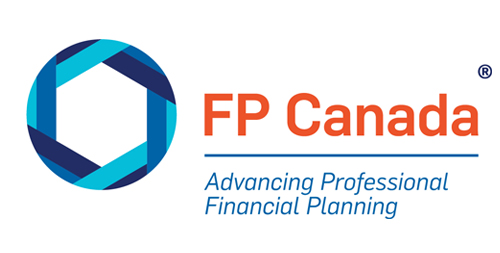Travel Insurance
KNOWLEDGE EXPECTED OF: QAFP® Professionals
Highest Knowledge Level: Awareness
Knowledge Levels and Associated Verbs
|
Awareness
The state of being aware that something exists / to have familiarity with a particular activity or subject
|
Understanding
To comprehend the general relationship of particulars / to have an expertise with how something works
|
Application
Ability to put information to use / to use knowledge for relevant, practical purposes
|
Evaluation
To judge or conclude by utilizing data / a systematic determination of something’s worth or significance
|
||||||
|---|---|---|---|---|---|---|---|---|---|
|
Define
To state exactly the meaning of
|
Identify
To be aware of / to recognize and correctly name / to locate an appropriate resource
|
Explain
To make clear the meaning of / to describe something in more detail or reveal relevant facts or ideas related to it
|
Determine
To ascertain / to come to a decision, such as by investigation or reasoning
|
Compare
To note the similarities and differences between two or more things
|
Estimate
To determine an approximate value for
|
Calculate
To find the value using mathematics
|
Convert
To change from one form or purpose to another
|
Evaluate
To reach a conclusion or make a through careful study
|
Interpret
To give the meaning of / to construe or understand / to translate orally
|
Hold cursor over or click on each term to read its definition.
- Identify sources of travel insurance policies, such as:
- Travel agent
- Group insurance plans
- Financial institutions
- Insurance companies, agents and brokers
- Credit card providers
- Identify types of coverage that may be available under a travel insurance policy, such as:
- Emergency hospital visits/stays
- Emergency surgeries
- Health-care-related medical services (doctor and dentist)
- Drugs and medical appliances related to a medical emergency
- Ambulance services
- Costs to return home for insured and travelling companions
- Repatriation
- Identify optional coverages that may be available on a travel insurance plan, such as:
- Trip cancellation
- Trip interruption
- Lost baggage
- Identify the purpose for which a travel insurance policy may be used, such as:
- Individuals travelling outside of their province of residence, but remaining within Canada
- Individuals travelling internationally
- Identify exclusions contained within travel insurance plans, such as:
- Pre-existing condition
- Condition that is unstable
- Pregnancy
- Acts of war
- Self-inflicted injuries
- Mental disorders
- Locations with a travel advisory warning in place
- Identify when a travel insurance policy may be underwritten.
- Pre-approval
- Post-claim
- Identify types of travel insurance policies that may be available, such as:
- Per trip
- Annual coverage
KNOWLEDGE EXPECTED OF: CFP® Professionals
Highest Knowledge Level: Awareness
Knowledge Levels and Associated Verbs
|
Awareness
The state of being aware that something exists / to have familiarity with a particular activity or subject
|
Understanding
To comprehend the general relationship of particulars / to have an expertise with how something works
|
Application
Ability to put information to use / to use knowledge for relevant, practical purposes
|
Evaluation
To judge or conclude by utilizing data / a systematic determination of something’s worth or significance
|
||||||
|---|---|---|---|---|---|---|---|---|---|
|
Define
To state exactly the meaning of
|
Identify
To be aware of / to recognize and correctly name / to locate an appropriate resource
|
Explain
To make clear the meaning of / to describe something in more detail or reveal relevant facts or ideas related to it
|
Determine
To ascertain / to come to a decision, such as by investigation or reasoning
|
Compare
To note the similarities and differences between two or more things
|
Estimate
To determine an approximate value for
|
Calculate
To find the value using mathematics
|
Convert
To change from one form or purpose to another
|
Evaluate
To reach a conclusion or make a through careful study
|
Interpret
To give the meaning of / to construe or understand / to translate orally
|
Hold cursor over or click on each term to read its definition.
- Identify sources of travel insurance policies, such as:
- Travel agent
- Group insurance plans
- Financial institutions
- Insurance companies, agents and brokers
- Credit card providers
- Identify types of coverage that may be available under a travel insurance policy, such as:
- Emergency hospital visits/stays
- Emergency surgeries
- Health-care-related medical services (doctor and dentist)
- Drugs and medical appliances related to a medical emergency
- Ambulance services
- Costs to return home for insured and travelling companions
- Repatriation
- Identify optional coverages that may be available on a travel insurance plan, such as:
- Trip cancellation
- Trip interruption
- Lost baggage
- Identify the purpose for which a travel insurance policy may be used, such as:
- Individuals travelling outside of their province of residence, but remaining within Canada
- Individuals travelling internationally
- Identify exclusions contained within travel insurance plans, such as:
- Pre-existing condition
- Condition that is unstable
- Pregnancy
- Acts of war
- Self-inflicted injuries
- Mental disorders
- Locations with a travel advisory warning in place
- Identify when a travel insurance policy may be underwritten.
- Pre-approval
- Post-claim
- Identify types of travel insurance policies that may be available, such as:
- Per trip
- Annual coverage
Additional Knowledge Expected of CFP Professionals
- Identify the potential impact that may result from the time of underwriting for a travel insurance policy.
- Identify that travel insurance policies may contain a first-loss payable clause.
- Identify the potential implication of a first-loss payable clause.
- Identify factors that may impact the premium of a travel insurance policy, such as:
- Number of individuals covered
- Age
- Benefit coverage
- Length of coverage
- Health history (pre-existing condition)



 previous / Private Health Services Plans
previous / Private Health Services Plans